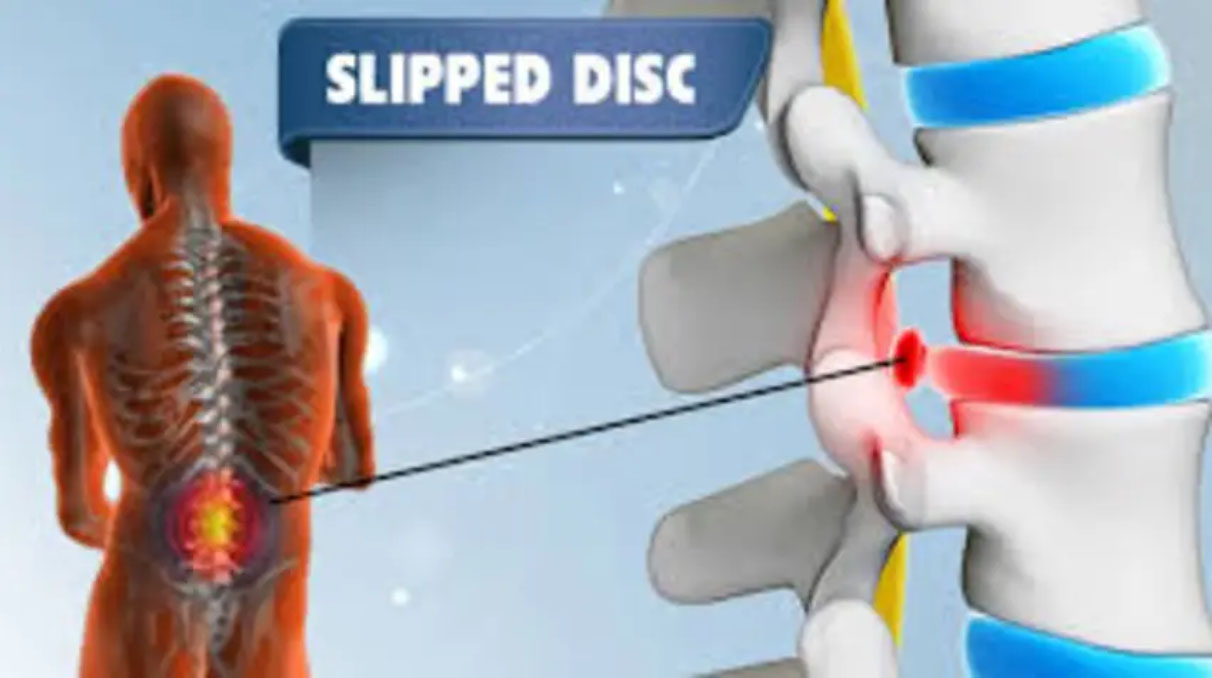 Slipped Disk or Prolapsed Intervertebral Disc causes intense pain in back, legs & sciatic nerve. Know the cause & homeopathic medicine for a slipped disk. Are you looking for a homeopathic cure for the slipped disk? This article discusses the homeopathy treatment for slipped disk along with the best homeopathic medicine for slipped disk treatment.
Slipped Disk or Prolapsed Intervertebral Disc causes intense pain in back, legs & sciatic nerve. Know the cause & homeopathic medicine for a slipped disk. Are you looking for a homeopathic cure for the slipped disk? This article discusses the homeopathy treatment for slipped disk along with the best homeopathic medicine for slipped disk treatment.
The disks are pads of tissue situated between each of the vertebrae that make up the spinal column. Each disk consists of a tough, fibrous outer ring called the annulus fibrous and a softer, jelly-like inner layer called the nucleus pulpous. The function of the disk is to act as both a strong connection between the vertebrae and a cushion to absorb weight on the spinal column.
A slipped disk does not really slip; the tough outer fibrous ring (annulus) cracks open and the softer inner layer protrudes (prolapse) through the crack, like toothpaste coming out through a crack in a toothpaste tube. For this reason, doctors prefer to speak of a disk prolapse rather than a slipped disk.
The disk begins to prolapse when a crack develops in its tough outer ring. This is usually the effect of wear and tear in the back as a result of normal aging. One particularly heavy or awkward lift, a fall, or even a sudden cough or sneeze may force some of the soft disk nuclei to prolapsed, leading to sudden prolapsed.
The nucleus of a disk is softest and most jelly-like during childhood. Over the years the nucleus gradually dries out so that by middle age it has a consistency similar to crab-meat. As someone gets older, the nucleus becomes even firmer. In elderly people the disk is mainly a section of scar tissue; this accounts for the fact that old people lose height.
A slipped disk occurs less frequently as people get older; it is a disorder affecting young adults and people in early middle age. Disk protrusion occurs where the outer layer of the disk is weakest; that is, just in front of the nerve roots, which emerge from the spinal cord at each vertebral level. There is very little free space within the spinal canal, and the protruding disk material presses on the nerve root at that level and causes the painful symptoms of a slipped disk.
The area of the spine most likely to be affected is the lowermost part of the back. Here the greatest strains occur, and it is not surprising that most disks that fail are at this level. However, it is possible for disks to prolapse at any level along the length of the spinal column – in the back of the neck.
Homeopathic Treatment for Slipped Disc Pain
Homeopathy is one of the most popular holistic systems of medicine. The selection of homeopathic medicine for a slipped disk is based upon the theory of individualization and symptoms similarity by using a holistic approach.
This is the only way through which a state of complete health can be regained by removing all the signs and symptoms from which the patient is suffering. The aim of homeopathic medicine for a slipped disk is not only to treat slipped disk but to address its underlying cause and individual susceptibility.
As far as therapeutic medication is concerned, several remedies are available to treat a slipped disk that can be selected on the basis of cause, sensations, and modalities of the complaints. These are the homeopathic remedies which are most often helpful in the treatment of slipped disk:
Homeopathy Medicines for Slipped Disc Pain
Here we create list some natural homeopathic medicine for slip disc pain. For individualized, homeopathy remedy selection and treatment can be varied patient to patient:
- Bryonia
- Rhus tox
- Kali carb
- Phosphorus
- Sepia
- Lachesis
- Thuja occidentalis
- Ruta
- Calcarea carb
- Cimicifuga
- China Officinalis
- Natrum Mur
- Pulsatilla
- Kalmia
- Ledum pal
- Medorrhinum
- Calcarea Phos